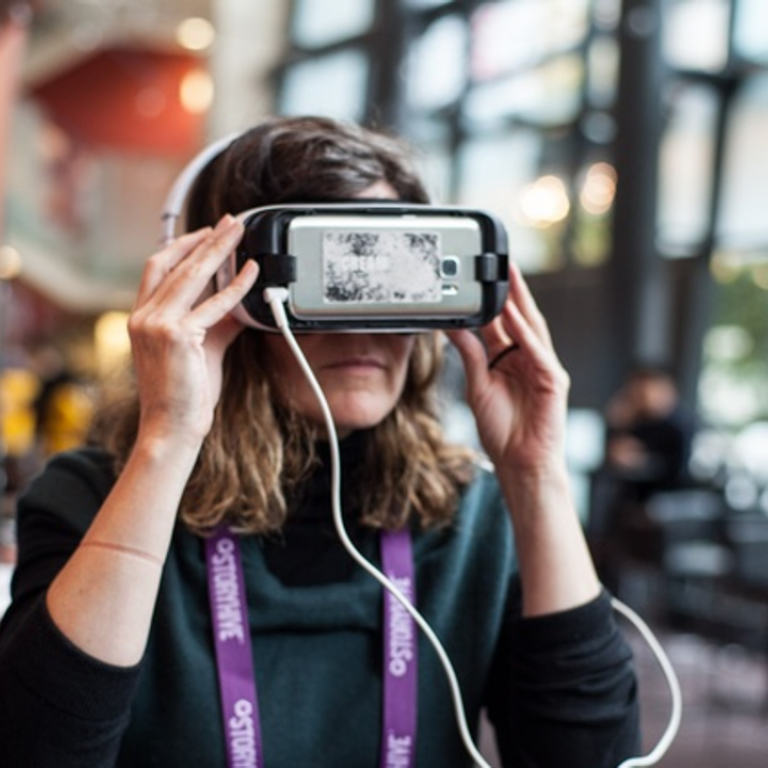
Debate on VR’s potential for Hollywood hits Vancouver International Film Festival
VIFF panellists muse on whether the VR market winner will be filmmakers or gamers
A bulky virtual reality headset – the kind Ted Schilowitz calls a “face-hugger” – harkens back to a bygone Hollywood era.
Even the most advanced devices, like the US$600 Oculus Rift or the US$800 HTC Vive, might make users appear as if they’re extras from the 1982 Tron film.
“We are essentially using black and white cameras when the world has moved onto colour,” Schilowitz, a futurist at 20th Century Fox, told a crowd attending a daylong virtual reality (VR) conference October 4 at the Vancouver International Film Festival.
For live-action VR – as opposed to the digital environments associated with VR gaming – to be successful, Schilowitz said big leaps forward are still needed in “spatial cinematography.”
Presently, live-action VR offers 360-degree views of an environment but does not allow users to lean their heads inward to change their perspectives or interact with the setting.
Advancements in spatial cinematography would give filmmakers the tools to create live-action, immersive environments users can interact with, move objects at their will or simply just walk around.
But can Hollywood hope to make money from VR?
A January Deloitte Global report forecasted that 2016 would be VR’s first year of US$1 billion sales, with US$300 million of that total coming from content. It said the bulk of the VR industry’s revenue would be generated from VR headset sales.
But that lack of content, the report said, would keep VR a niche market throughout the rest of the year.
“For production people, it’s a great time because there’s so much money coming into the development space,” PCB Productions president Keith Arem said at the conference.
PCB Productions has developed VR services for 30 titles so far in 2016, the bulk of which were for the gaming industry.
While “tremendous amounts of money” is going to developers, Arem cautioned that the monetization of VR products is a different story for the studios commissioning the work when high-end headsets are still so expensive.
“I don’t think people anticipated the sheer amount of foreign investment that’s gone into this,” said John Canning, vice-president of new media at the Producers Guild of America.
“There is no major VR company that I can think of that hasn’t been courted by or hasn’t taken money from Chinese firms.”
Canning added the main reason why Hollywood likely won’t lose money on VR is because so much of the investment in technology is going toward gaming, where the return on investment is already greater.
Game developers will invest in big advancements, he said, while filmmakers can capitalise later on the new technology.
But Arem said the rapid advancements in technology mean VR business models are changing daily.
“Everyone knows that mobile is going to be the explosion we want the mass market to get to, but the high-end tethered systems [Oculus Rift, HTC Vive] are really the better experiences right now.”
“The return on investment is an interesting thing,” said Denny Unger, CEO of BC-based Cloudhead Games.
His company spent four years developing its first VR game, which pushed the team to offer the title at a price Unger admitted was quite high.
“Finding the right price is incredibly challenging right now and trying to educate the public about why our price is higher [is challenging].”

